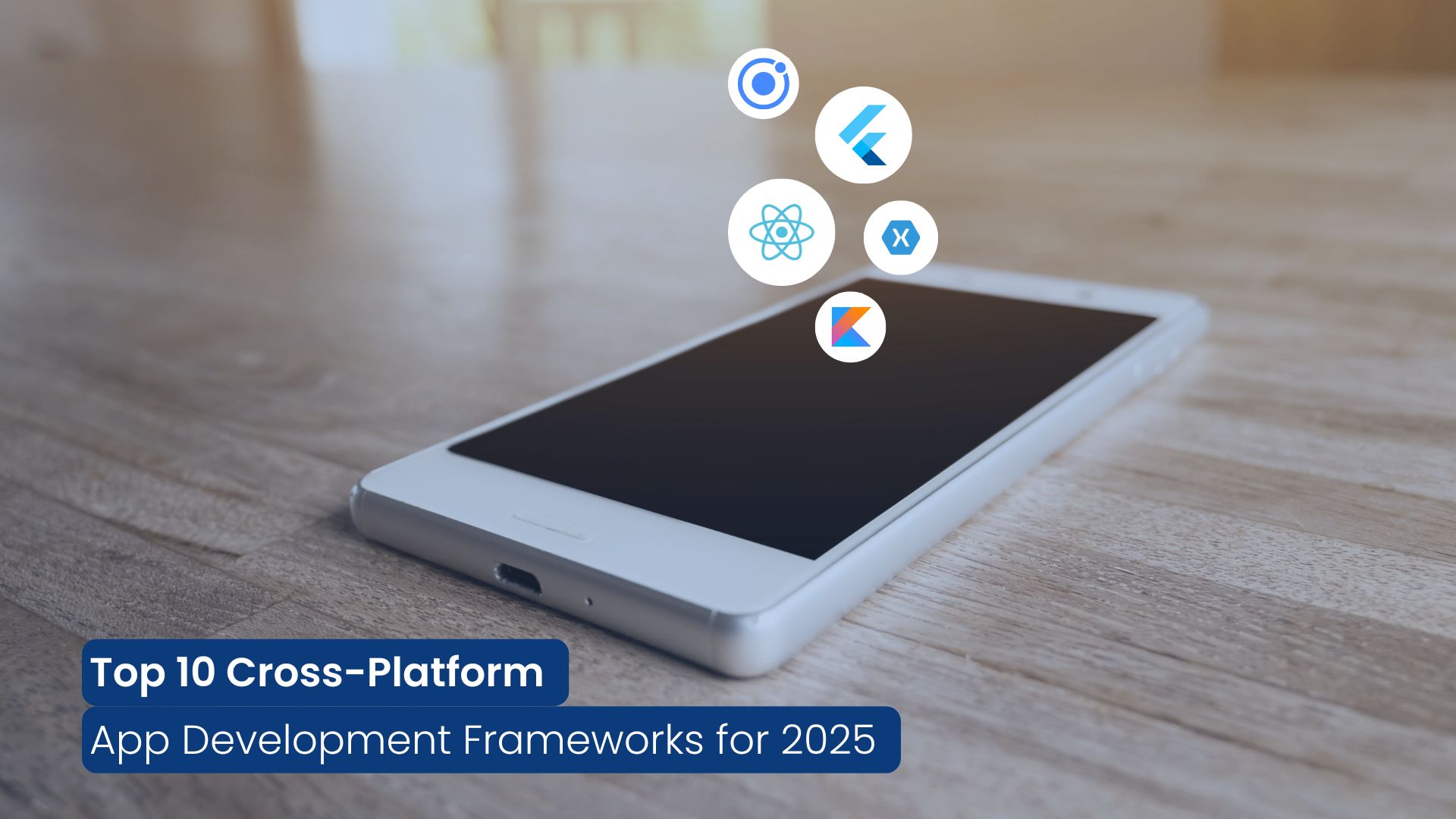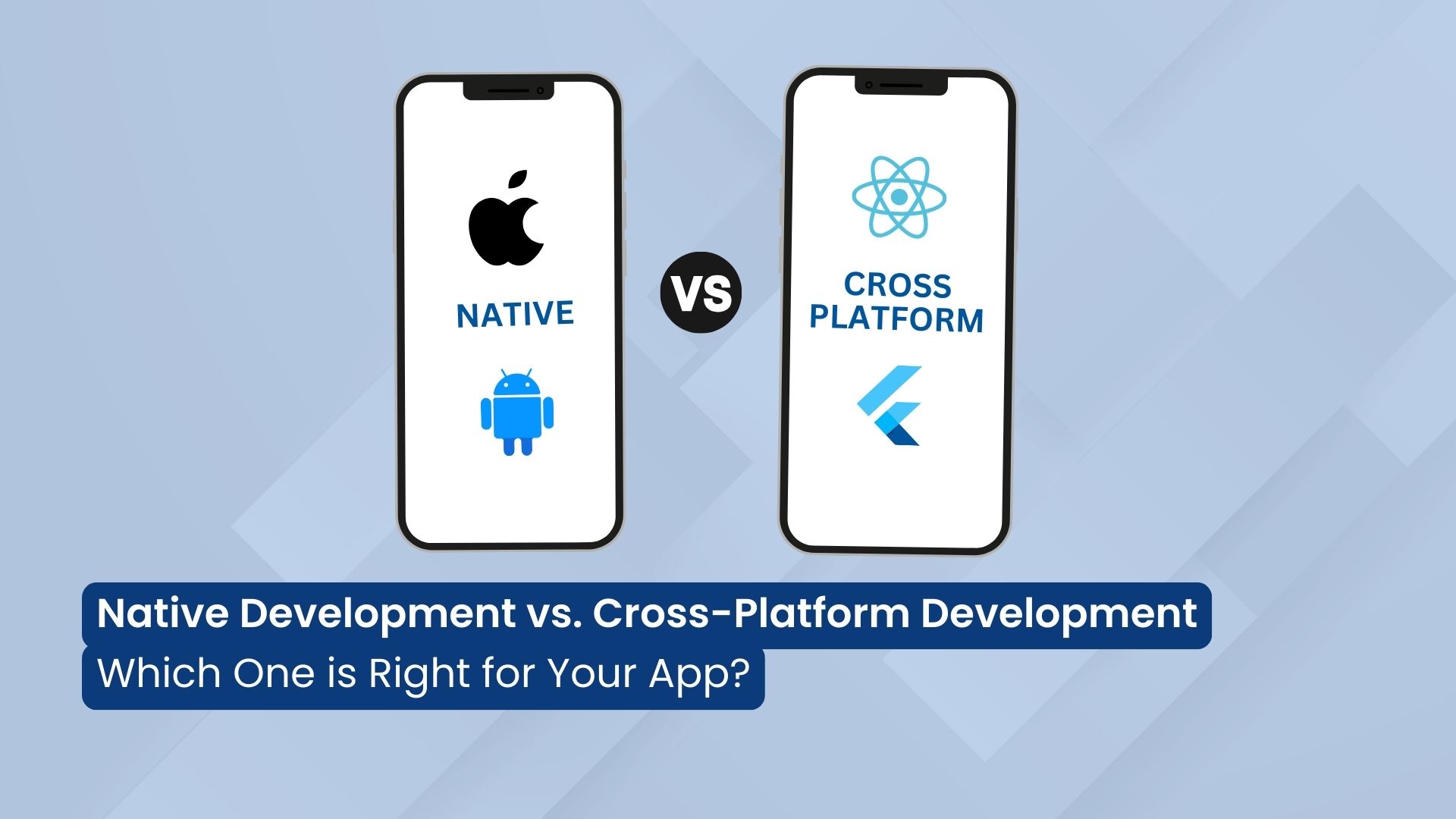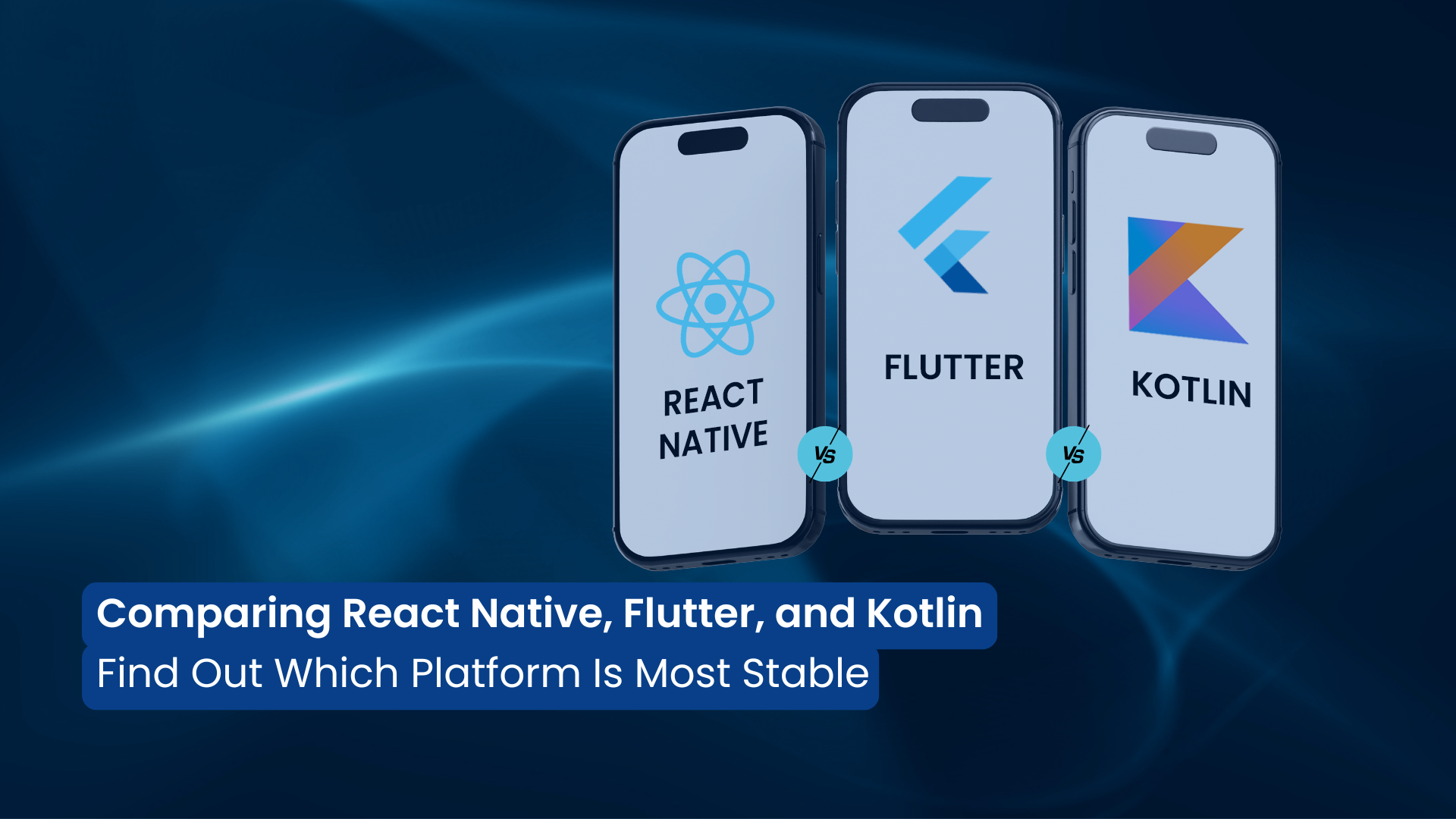Streamline Your Data Processes - Start a project!
Get customized solutions for your business - Try Our Services Today!
Streamline Your eCommerce Operations - Try Our Services Today!

Top 10 Cross-Platform App Development Frameworks 2025
The mobile app industry is witnessing massive growth as the value of the global mobile app development market is expected to reach USD 753.34 billion in 2033 from USD 302.1 billion in 2025. In this continually shifting environment, businesses have tended to shift towards cross-platform app development solutions to widen the reach of their apps while minimising costs and time in development.
Cross-platform app development unlocks numerous possibilities for businesses to develop mobile solutions. It is a smart way to address multiple platforms simultaneously using a single codebase. This entire approach drives down the mobile app development costs substantially and almost shortens the time to market.
This blog will discuss the top 10 app development frameworks that are defining the mobile development landscape in 2025. We will be analysing the attributes, performance and suitable use cases for each of them to help you make the best decision for your next mobile project.
Why Cross-Platform Development Matters in 2025
The shift toward cross platform app development is a strategic necessity. With 46% of the developers worldwide stating that they use Flutter for cross-platform app development, making it the most popular framework globally, it's clear that the industry has embraced this approach.
Key benefits of cross-platform development include
-
Cost Efficiency - Develop once, deploy everywhere
-
Faster Time to Market Single codebase means quicker development cycles
-
Consistent User Experience - Uniform functionality across platforms
-
Easier Maintenance - Updates and bug fixes are applied universally
-
Broader Market Reach - Simultaneous iOS and Android presence
Top 10 Latest Cross-Platform App Development Frameworks
1. Flutter
Flutter continues to dominate the cross-platform app development space with its impressive performance and beautiful user interfaces. Built by Google, this app development framework uses the Dart programming language and offers native like performance across platforms.
Key Features
-
Hot reload for instant development feedback
-
Rich widget library with Material Design and Cupertino widgets
-
Excellent performance with compiled native code
-
Strong community support and extensive documentation
Best for Apps requiring beautiful, custom UIs and high performance
2. React Native
React Native stays high on the list for companies invested in JavaScript ecosystems. This framework allows one to build mobile apps using React together with JavaScript and making it accessible to web developers.
Key Features
-
Code reusability between web and mobile platforms
-
Large community and third party library ecosystem
-
Native module integration capabilities
-
Live reload for faster development
Best for Teams with existing React/JavaScript expertise
3. Kotlin Multiplatform Mobile
Kotlin Multiplatform Mobile is JetBrains' cross platform app development tool, wherein one shares business logic but also keeps the UI native compponents.
Key Features
-
Native performance with shared business logic
-
Seamless integration with existing native codebases
-
Full interoperability with Android and iOS platforms
-
Type safe programming environment
Best for Teams wanting to share logic while keeping native UIs
4. Xamarin
Xamarin is a full fledged app development framework supported by Microsoft, with great tools for enterprise applications.
Key Features-
-
C# programming language
-
Complete access to native APIs
-
Shared business logic across platforms
-
Strong integration with the Microsoft ecosystem
Best for Enterprise applications and teams using Microsoft technologies
5. Ionic
Ionic utilises web technologies like - HTML, CSS, and JavaScript for creating mobile applications. Ionic is familiar for web developers who are moving onto mobile development
Key Features
-
Web technology foundation
-
Extensive UI component library
-
Progressive Web App (PWA) support
-
Easy learning curve for web developers
Best for Web developers and simple to medium complexity apps
6. PhoneGap/Apache Cordova
PhoneGap, based on Apache Cordova was one of the first cross platform app development frameworks and is still in service to businesses who needs web based mobile solutions.
Key Features
-
HTML, CSS and JavaScript development
-
Extensive plugin ecosystem
-
Easy deployment to app stores
-
Cost effective development approach
Best for Simple apps & rapid prototyping
7. Unity
Unity is a booming platform for game and immersive applications and provides powerful cross platform app development capabilities for interactive experiences.
Key Features-
-
Advanced 3D and 2D rendering capabilities
-
AR/VR development support
-
Asset store with extensive resources
-
Multiplatform deployment options
Best for Games, AR/VR applications and interactive experiences
8. NativeScript
With NativeScript, there is a balance maintained between accessing native APIs and maintaining cross-platform app development efficiency. This offers a balance between performance and development speed.
Key Features-
-
Direct access to native APIs
-
JavaScript, TypeScript, or Angular development
-
Hot module replacement
-
Native performance without compromises
Best for Apps requiring extensive native functionality
9. Sencha Ext JS
Sencha Ext JS is specialised in creating data intensive applications which has rich user interfaces, these interfaces particularly suites for enterprise environments.
Key Features-
-
Comprehensive UI component suite
-
Data intensive application support
-
Enterprise grade security features
-
Advanced theming capabilities
Best for Enterprise data applications and dashboards
10. Appcelerator Titanium
Appcelerator Titanium is focused on rapid app development with JavaScript. It offers a well matured platform that use for building native mobile applications.
Key Features-
-
JavaScript development environment
-
Native API access
-
Rapid development capabilities
-
Cloud services integration
Best for Rapid prototyping and medium complexity applications
Choosing the Right Framework for Your Project
Selecting the perfect app development framework depends on several factors
Technical Considerations
-
Team Expertise - Choose frameworks that align with your team's skills
-
Performance Requirements - Consider native like performance needs
-
UI Complexity - Evaluate framework capabilities for your design requirements
-
Platform Specific Features - Assess access to native functionalities
Business Factors
-
Budget Constraints - Factor in development and maintenance costs
-
Timeline - Consider development speed and time to market requirements
-
Scalability - Plan for future growth and feature additions
-
Maintenance - Evaluate long term support and update requirements
The Future of Cross-Platform Development
The cross platform app development landscape continues evolving with emerging technologies and frameworks. According to the 2023 Stack Overflow Developer Survey, 9.12% of engineers use Flutter and 8.43% use React Native, showing the strong adoption of leading frameworks.
Key trends shaping Mobile App Development Trends include
-
Improved Performance - Frameworks are getting closer to native performance
-
Better Tooling - Enhanced development tools and debugging capabilities
-
AI Integration - Built-in support for machine learning and AI features
-
Cloud Integration - Seamless connectivity with cloud services
Cost Considerations and ROI
Cross-platform app development offers notable cost advantages over traditional native development. By choosing the right framework and partnering with an affordable app development company, businesses can reduce their development costs while maintaining quality and performance.
Cost benefits include
-
Reduced Development Time - Single codebase for multiple platforms
-
Lower Maintenance Costs - Unified updates and bug fixes
-
Shared Resources - Single development team for all platforms
-
Faster Market Entry - Quicker revenue generation
Making the Right Choice
The key to the success of your mobile application is choosing the right app development framework. Think about your project requirements, team expertise, budget constraints & long-term goals as you make this important decision.
Flutter and React Native continue to be the most popular choice in most projects while offering great performance, community support and great developer experience. However, for stiff requirements, one might want to consider frameworks such as Unity for gaming or Kotlin Multiplatform for teams heavily invested in native development.
In Conclusion
Understanding the cross platform app development market in 2025 provides an opportunity to build high-grade, efficient, and cost-effective mobile applications. Whether you are building your first mobile app or are on an expansion route to intensifying your digital presence, these top 10 frameworks offer the best prospects of creating high-quality applications with good performance that function well across multiple platforms. Hence, it is all about knowing your specific needs, team capabilities, and business objectives in making an informed decision.
Do you want to start your cross-platform app development journey?
Contact our expert team at Syncrasy Technologies to discuss your project requirements. Let’s explore how we can help you build outstanding mobile applications that will promote business growth & engagement of users.
Categories
- Digital Asset Management (DAM)
- Artificial Intelligence (AI)
- Product Information Management (PIM)
- E-commerce
- Master Data Management (MDM)
- Digital Experience Management
- Customer Data Platform
- Data Management Platform
- Recruitment
- Covid-19
- Digital Workspace
- Digital Experience Portal (DXP)
- Omnichannel Experience
- Pimcore
- Framework Comparison
- Software Development
- Learning Management Solution (LMS)
- CRM System
- Sales Portal
- Salesforce
- Blockchain Development
- App Development
- Technology
Similar Blogs

Why Your Web App is Failing & How to Fix It (5 Common Mistakes)
Your business success depends greatly on the quality of your web application. Despite significant in...
Read More
Native Development vs. Cross-Platform Development: Which One is Right for Your App?
Before mobile app development, organisations must decide - Whether they Should pursue native develop...
Read More
Comparing React Native, Flutter, & Kotlin: Which One Wins in 2025?
Three frameworks are currently ruling in the mobile development sector - React Native, Flutter, and ...
Read More
How to Build a Scalable Web App That Handles Millions of Users
Imagine your web application suddenly going viral. The trickle of daily users quickly becomes a stre...
Read More

